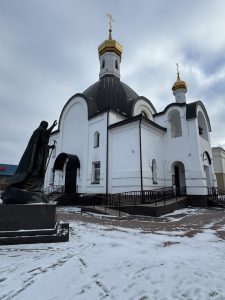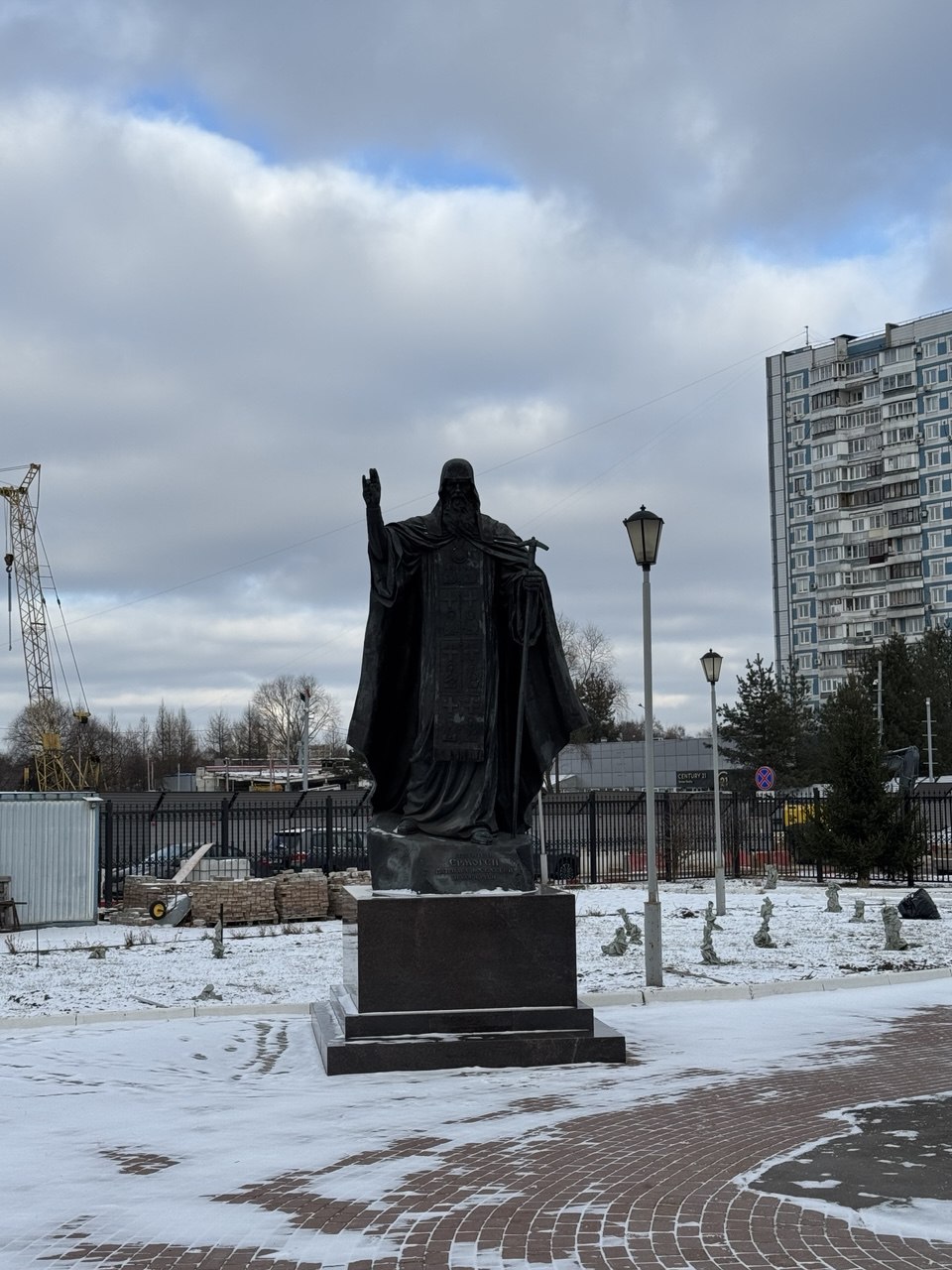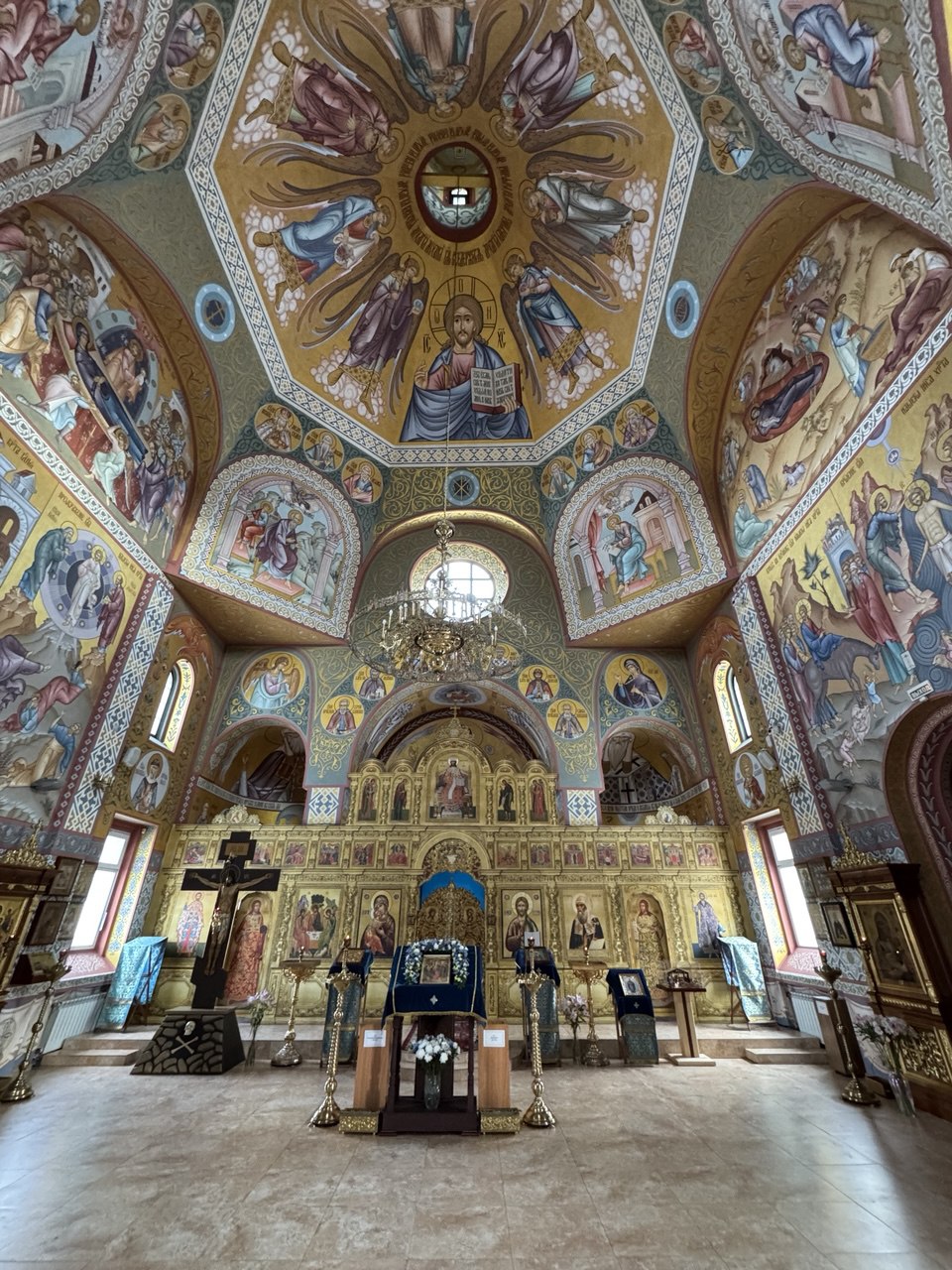Church of the Holy Martyr Hermogenes, Patriarchal compound in Krylatskoye

Holy Martyr Yermogen (in the world Yermolai), Patriarch of Moscow and All Russia, was born around 1530 in a family of Don Cossacks. The years of his life fell on significant events in Russian history: the conquest of Kazan, Astrakhan, Siberia, the wedding of John IV to the All-Russian kingdom, the publication of the Judicial Code and the holding of the first Zemsky Councils. In this historical context, Ermogen grew up, sharing the bitterness of his people from the arbitrariness of Poland, which seized part of the original Russian lands and tried to impose a union, opposing Orthodoxy. These events had a deep impact on him, preparing him for the ministry of the Church and the Fatherland. The beginning of the church career of the future patriarch is associated with Kazan, where he served as a priest in the church of St. Nicholas. Contemporaries noted his wisdom, deep knowledge and purity of life. In 1579, while already at the priestly post, he witnessed the miraculous appearance of the Kazan Icon of the Mother of God. Hermogenes was the first to take the icons from the ground, showed them to the gathered people and solemnly transferred it to St. Nicholas Church. Soon he took monastic tonsure with the name Yermogen, probably in the Miracle Monastery, which would later become his vow. A few years later he was appointed archimandrite of the Transfiguration Monastery in Kazan, and in 1589 he was consecrated bishop and became the first Metropolitan of Kazan. At this department, Hermogenes carried out great missionary work among the Tatars, trying to attract them to Orthodoxy. As a bishop, Yermogen also took part in the acquisition and preservation of the Kazan Icon of the Mother of God, about which he wrote a service and compiled the Legend of the Appearance of the Icon. In 1591, he achieved the establishment of a special day of remembrance for Orthodox soldiers who died in battles near Kazan, for which he was blessed by Patriarch Job. In 1595, with his support, the relics of Saints Guria and Barsanuphius were acquired, and a new temple was built in the Kazan monastery, in which their imperishable relics were placed. Since 1606, Hermogenes became Patriarch of Moscow and All Russia, leading the Russian Church in the difficult times of the Time of Troubles. During this period, when False Dmitry and the Polish king Sigismund III threatened the Russian state, Patriarch Yermogen played a key role in resisting foreign invaders. He was an active supporter of the election of a legitimate monarch from the Rurikovich clan to the Russian throne, opposing Polish ambitions. In 1608, he sent two messages to the impostors, in which he condemned their actions and called for the defense of the motherland and the Orthodox faith. Hermogenes did not stop at spiritual support, actively participated in hostilities, motivating the people to fight enemies. It became a symbol of spiritual resistance, inspiring people to liberate Moscow from Polish-Lithuanian invaders. When in 1611 the Polish interventionists captured the Kremlin, Yermogen was imprisoned in the Miracle Monastery, where he languished from hunger and thirst. His suffering and courage became a symbol of perseverance and faith for the Russian people. On 27 February 1612 he died, and his death rallied the people, inspiring them to finally liberate the country. November 6, 1612, after the victory over the Polish-Lithuanian troops, Russia gained the long-awaited freedom. His body was buried in the Miracle Monastery, and 40 years later, in 1652, his relics were discovered incorrupt, which became evidence of his holiness. The memory of St. Hermogen was passed down from generation to generation, and the people turned to him as an intercessor and prayer book before God. In 1913, his glorification became a national holiday. Many people from all over Russia came to bow to his relics in the Assumption Cathedral of the Moscow Kremlin. On the day of the glorification, miracles of healing took place, which confirmed his holy status. The Holy Synod of the Russian Church established two days of celebration of the memory of St. Hermogenes: March 2 – the day of his death and May 25 – the day of glorification. Patriarch Yermogen left a deep mark in the history of the Russian Church and the state, inspiring future generations to fidelity to the Orthodox faith and love for the Motherland.
Address: Moscow, Osennaya str., 32, building 1

